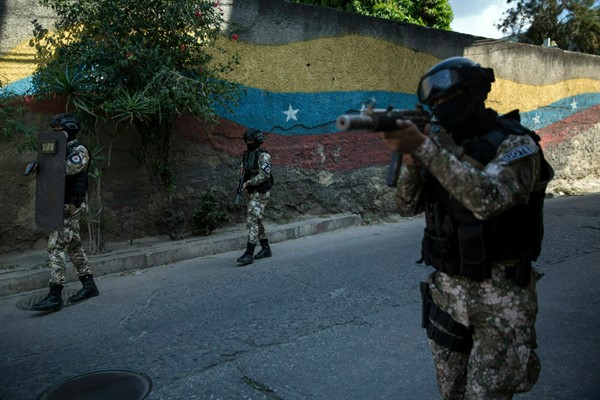Venezuela’s authoritarian president, Nicolas Maduro, has managed to stay in power for eight years despite remaining profoundly unpopular, overseeing a spectacular economic collapse and facing years of opposition efforts to dislodge him. There’s little doubt Maduro has outplayed his opponents, and yet, his hold on the country is more tenuous than it seems.
The democratic opposition has indeed failed to remove him. But under Maduro, Venezuela is increasingly becoming a land of militias, warlords and criminal gangs. As they gradually divide the country into fiefdoms, the state’s footprint is steadily shrinking. The government’s sway beyond the capital city is significantly less than one might expect in a country whose regime has monopolized political power.
It would be an exaggeration, but not a very big one, to say Maduro is becoming no more than the de facto mayor of Caracas. He is still the president of a state where the executive maintains control of key tools and institutions, most notably the military, so the emerging fiefdoms don’t pose an immediate threat to his rule. And yet, the essentially bankrupt central government has seen its writ contract across the country. Maduro’s authority beyond Caracas is now greatly curtailed.

